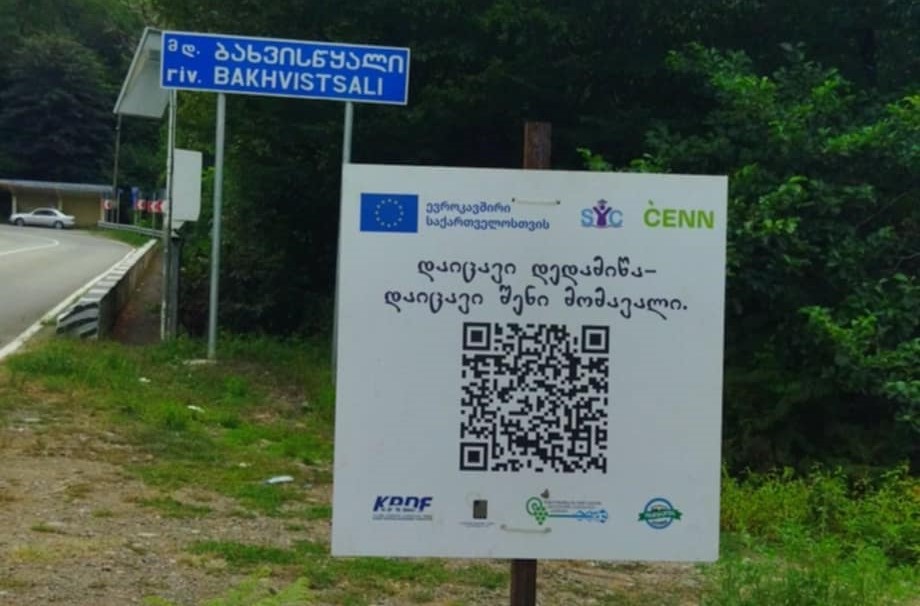Georgia: How Tkibuli kindergarten turned sunlight into clean energy with EU support
Solar panels in Georgia
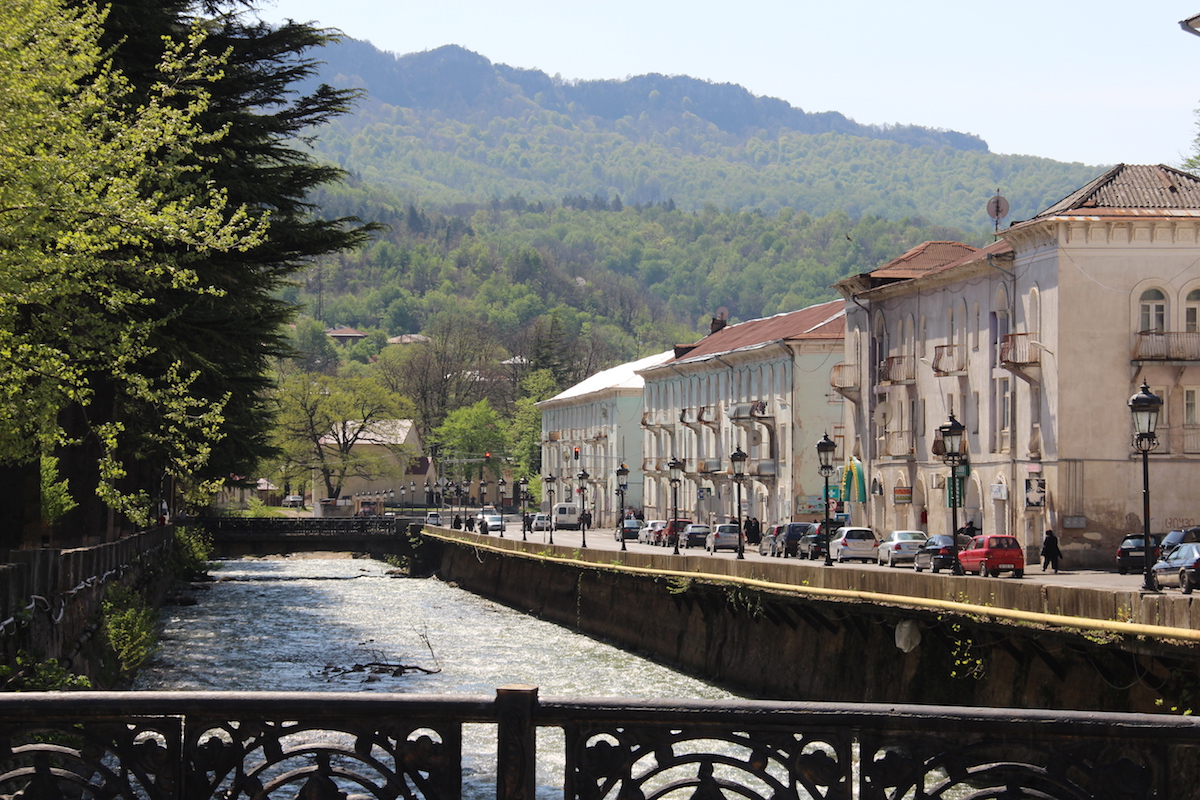
In Tkibuli, Georgia, a city plagued by environmental issues, one of the local kindergartens has begun using solar energy.
Solar panels were installed last year at Kindergarten No. 6, situated in a more remote part of the city, and were put into operation this spring.
Now it’s summer, and the kindergarten is on break, so the generated electricity isn’t being used. However, this presents an excellent opportunity to earn some money.
And that’s not all.
Environmentalists in Tkibuli, known as the “mining city,” are implementing numerous initiatives with the help of various organizations and funds to support a city struggling to breathe.
Tkibuli – the “mining city”
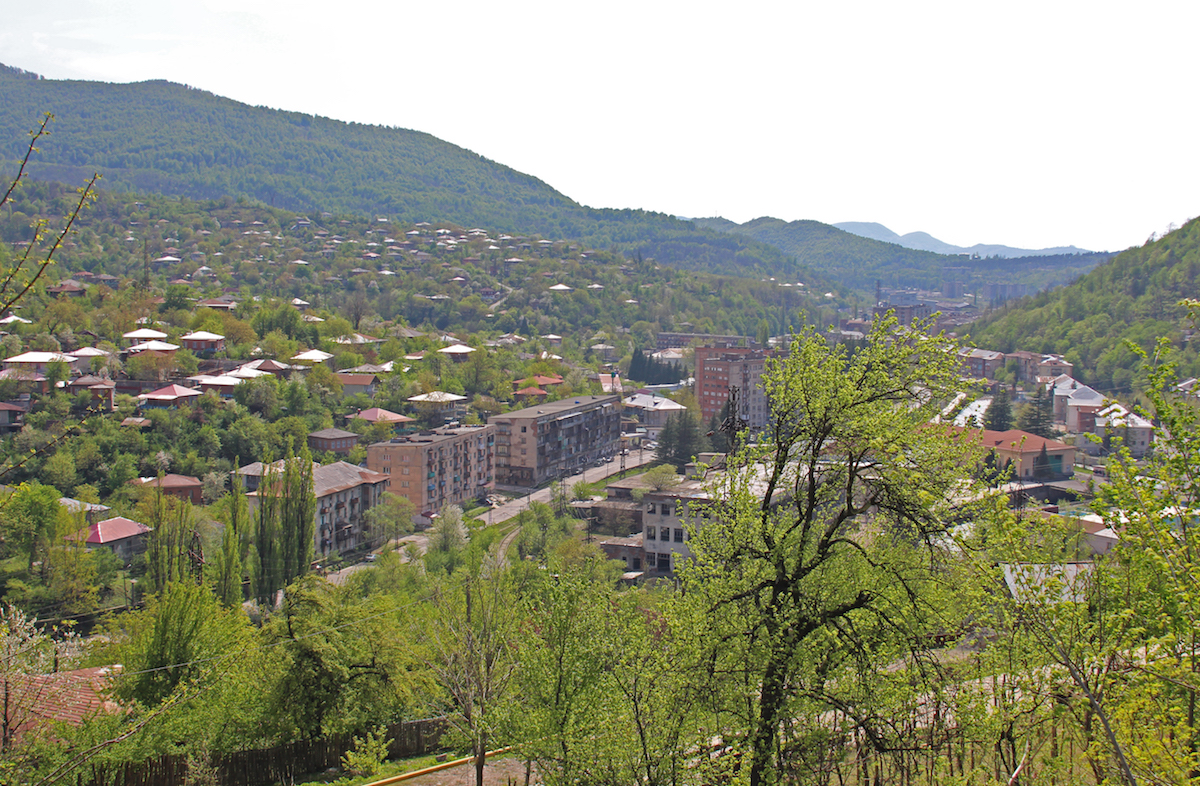
The city of Tkibuli is located 230 kilometers from Tbilisi. During Soviet times, Tkibuli, along with Tkvarcheli, was one of Georgia’s main coal-mining towns.
The coal deposit in Tkibuli was discovered exactly two centuries ago, in 1825. Twenty years later, mining operations began.
In the communist era, Tkibuli had four working mines. “Life has deteriorated,” as the locals say; back then, there was also a lemonade factory, a sewing plant, and other enterprises near the mines, which meant jobs.
After the collapse of the Soviet Union, coal mining in Tkibuli ceased and was only resumed in 2006 when the mining rights were granted to the company Saknakhshiri.
Tkibuli faces severe environmental challenges. Along with income, coal mining has brought numerous problems to the city. The mining process releases coal dust, soot, and nitrogen and sulfur oxides into the air, while the water and soil are also contaminated. All of this has a significant impact on human health, as well as on local flora and fauna.
How did the idea for solar panels come about?
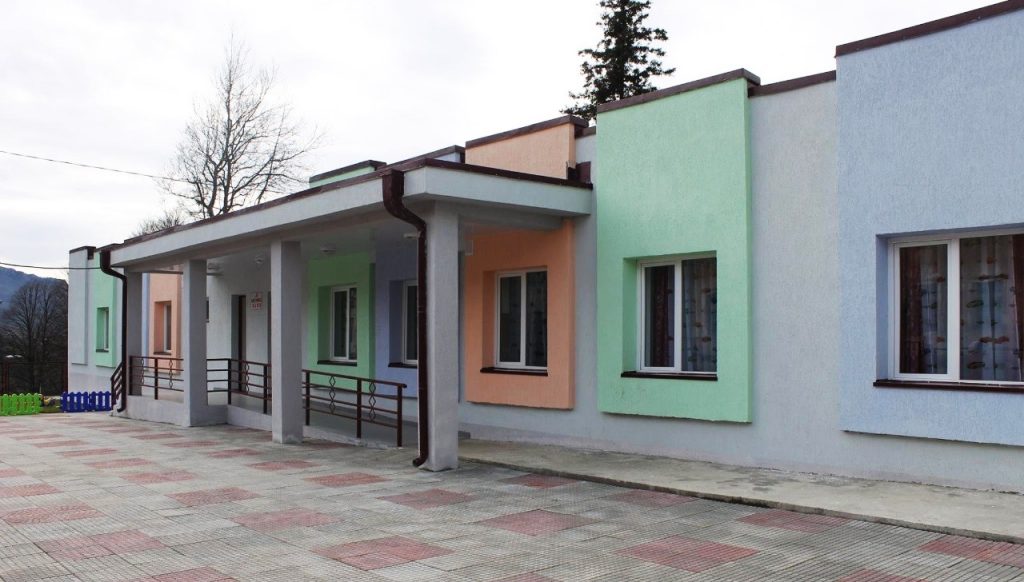
Against this backdrop, implementing a project promoting renewable energy in Tkibuli was especially significant and innovative. The project involved installing solar panels on the city’s largest kindergarten building.
The process began last summer. At Kindergarten No. 6 in Tkibuli, which serves around a thousand children, a solar power station with a capacity of 5.88 kWh was installed and went into operation in early March.
The project was carried out with financial support from the European Union under the small grants component of the environmental organization CENN.
The goal of the project was to promote the use of renewable energy sources in Imereti.
The project was overseen locally by the Tkibuli District Development Fund (FRR) and its head, Zaza Gochelashvili. The fund has been in existence for 16 years.
“We’ve been discussing and working on issues like environmental awareness, the importance of using renewable energy sources, and energy efficiency for many years. So, when we heard about the grant competition, we decided to participate. The environmental situation in Tkibuli is already quite challenging, and when there’s a chance to reduce harm to the environment, it’s essential to seize that opportunity,” says Zaza Gochelashvili.
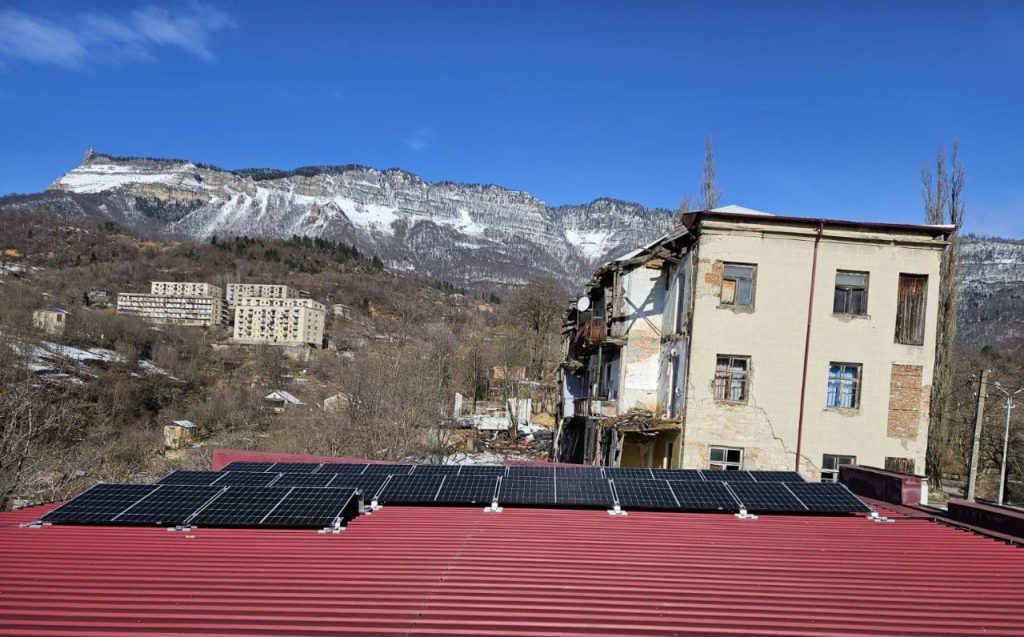
The kindergarten where the panels were installed is situated in a less central area of Tkibuli. Zaza Gochelashvili explains that the choice was driven not only by the size and scale of the building but also by the desire to create a new point of interest in the suburb:
“This is something new. There will be many visitors, bringing new life here, which is good for the town.”
The solar power station operates most efficiently on sunny, hot days. Since the kindergarten is currently closed, the generated solar energy can provide additional income.
The panels still generate energy even on cloudy days, as long as they aren’t covered with snow.
According to Zaza Gochelashvili, the installation of the solar power station on the kindergarten’s roof has sparked interest among other organizations and entrepreneurs:
“A precedent has been set in the region, and interest has quickly grown. Small businesses are exploring ways to do the same. Installing panels is quite costly and requires significant investment. In the case of the kindergarten, the costs were covered with the help of the European Union and CENN. If the opportunity arises to do this elsewhere, we will definitely participate in the project. We are committed to steadily promoting the use of renewable energy sources.”
How young people are trying to save Tkibuli
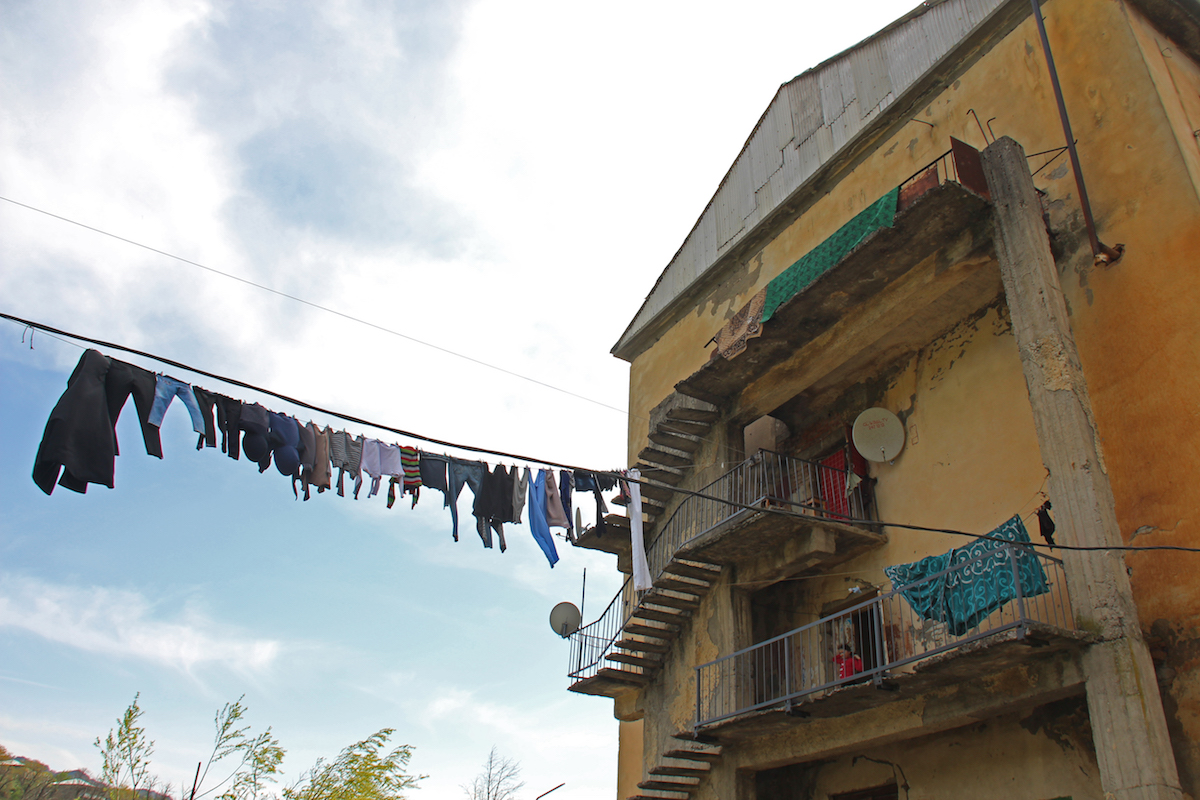
The project also included awareness campaigns, primarily involving young people.
One of the key areas of work for the Tkibuli District Development Fund is informal education, which has led to numerous initiatives in collaboration with youth.
As part of this project, a climate club was established in Tkibuli, attracting 15 young volunteers. They received specialized training on climate change, energy efficiency, and renewable energy.
These young people then took an active role in awareness campaigns, sharing information with their peers in schools and other institutions. They explained the importance of using renewable energy sources and how to conserve energy.
Fifteen-year-old Lizi Gvetadze, one of the climate club members, says she became interested in environmental issues two years ago.
“Our school has been actively participating in environmental initiatives for a long time. We have an eco-club, and various thematic meetings are regularly held. So, this project immediately caught my attention. I believe that in industrial towns where mining takes place and pollution levels are high, the population needs to be especially aware of the risks and the importance of ecology. Awareness campaigns are most needed in such places,” says Lizi.
A photo contest was also organized, focusing on climate change issues. The environmental challenges of Tkibuli, as seen through the eyes of young people, were finally showcased in an exhibition.
The events included a field trip to the Saknakhshiri company’s mine.
An international webinar was organized to share experiences on renewable energy use in Georgia and Poland.
“Polish experts shared their insights on the impact these initiatives have had over the years and why it’s crucial to continue developing this area. The data showed us the positive effects, both in terms of environmental protection and economically,” says Zaza Gochelashvili.
According to him, around 450 people participated in the project, most of them young people.
Zaza Gochelashvili emphasizes that in towns like Tkibuli, residents must utilize every resource available to mitigate the city’s severe environmental issues.
This article was written as part of the Georgia Climate Action Project, funded by the European Union and implemented by CENN in collaboration with the Kakheti Regional Development Foundation (KRDF), the Chiatura Union (ACU), the Association for Agrotourism Development of Racha-Lechkhumi and Kvemo Svaneti (RLS-ADA), and the Young Pegagogue’s Union (YPU). The project aims to strengthen civil society and promote human rights in four target regions of Georgia—Guria, Imereti, Kakheti, and Racha-Lechkhumi and Kvemo Svaneti—with a focus on the right to access water and a healthy environment.












